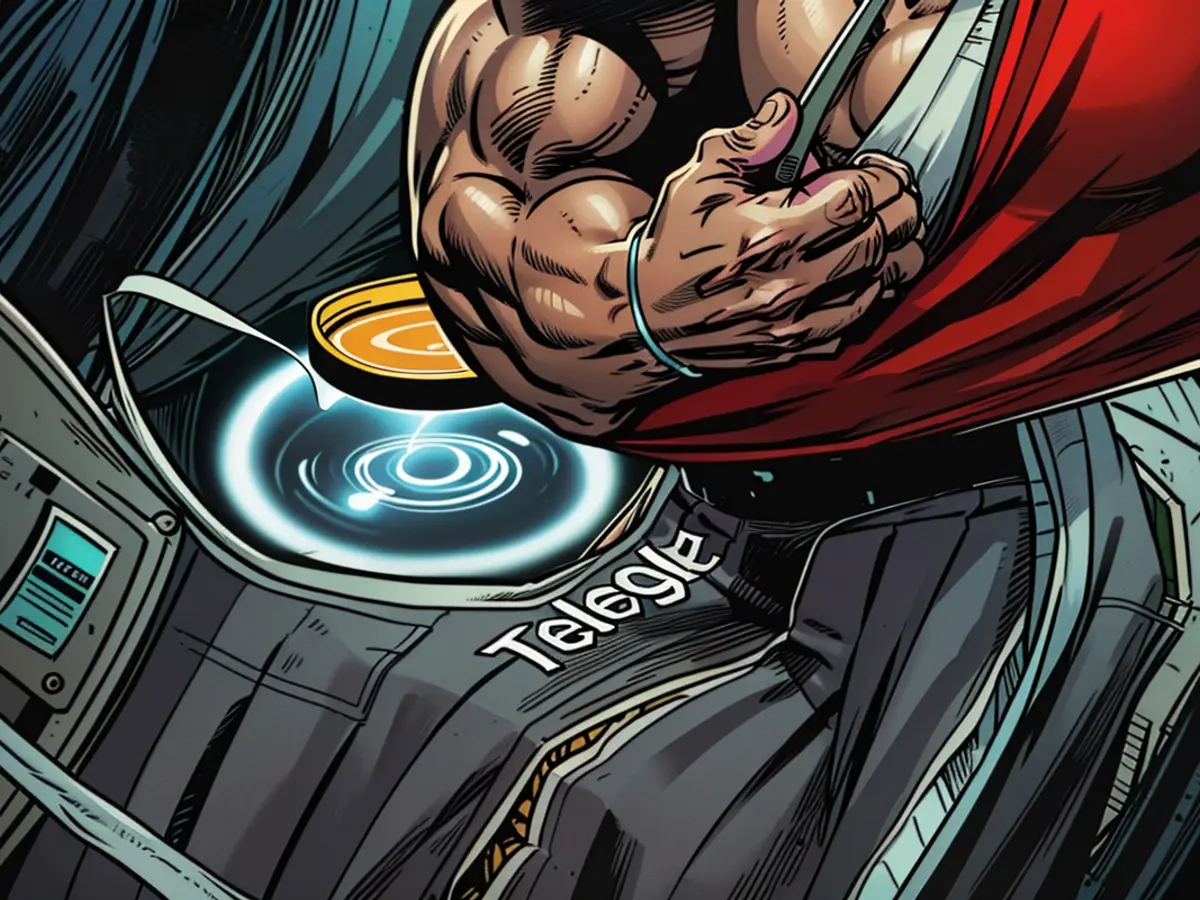- Biden: El acuerdo de Gaza podría disuadir a Irán de atacar
Irán podría potencialmente abstenerse de su amenazada retaliación contra Israel si hay un avance en las negociaciones para un alto el fuego en el conflicto de Gaza, según el presidente de EE. UU., Joe Biden. Cuando se le preguntó por reporteros, Biden respondió: "Esa es mi expectativa, pero veremos". El jueves, bajo la presión de EE. UU., Catar y Egipto, se planea una ronda potencialmente clave de conversaciones sobre un alto el fuego y un acuerdo de liberación de rehenes, probablemente en la capital de Catar, Doha. A diferencia de Israel, el islamista Hamas ha rechazado hasta ahora participar, stating que "no negociará bajo fuego", según fuentes de la agencia dpa cercanas a Hamas.
Las negociaciones indirectas continuarán incluso si Hamas no participa, citando el "Wall Street Journal" a mediadores árabes. En tal caso, informarían a la organización islámica sobre las condiciones discutidas para un alto el fuego. En un mensaje de Gaza a mediadores árabes, el líder de Hamas, Jihia al-Sinwar, dijo que si Israel está dispuesto a negociar y incluir a Hamas, debe detener primero sus operaciones militares en la Franja de Gaza, informó el periódico. Se cree que Sinwar se esconde en la extensa red de túneles de Hamas bajo la franja costera sellada.
Biden: No me daré por vencido
"Queremos que todos estén presentes, arremanguen y se pongan a trabajar el jueves", dijo John Kirby, portavoz del Consejo de Seguridad Nacional de EE. UU., en Washington. "Y al mismo tiempo, estamos observando de cerca lo que Irán y sus proxies podrían hacer esta semana". La Casa Blanca está preocupada por la posibilidad de que un ataque de Irán y Hezbolá a Israel saboteara las negociaciones para un alto el fuego y socavara un posible acuerdo. "Va a ser difícil", dijo Biden. "Veremos qué hace Irán y veremos qué pasa si hay un ataque. Pero no me daré por vencido".
Permanece incierto si y cuándo Irán y Hezbolá llevarán a cabo los ataques de retaliación amenazados tras el asesinato de un comandante militar de Hezbolá en Líbano y del jefe de exteriores de Hamas en la capital de Irán, Teherán. "Irán y Hezbolá no saben qué hacer. Hay muchos planes, pero aún no se han tomado decisiones", dijo un funcionario de EE. UU. al portal de noticias "Axios". EE. UU., el principal aliado de Israel, ha desplegado fuerzas militares adicionales en la región para disuadir y proteger a Israel y a sus propias tropas, temiendo que un ataque de retaliación a Israel pueda desencadenar una guerra más amplia en el Oriente Medio.
Mientras tanto, el gobierno de EE. UU. aprobó nuevas ventas de armas a gran escala a Israel. El Congreso ha sido informado sobre la próxima venta, que asciende a más de 20.000 millones de dólares (alrededor de 18.000 millones de euros), que incluye más de 50 cazas F-15, munición de tanque y vehículos militares tácticos, anunció el Departamento de Estado de EE. UU. El cumplimiento de tales contratos es un proceso a largo plazo. La entrega de munición de tanque no comenzará hasta 2027 y la de cazas hasta 2029. Estos son para el equipamiento a largo plazo del ejército israelí, no para su lucha actual con Hamas en Gaza.
EE. UU., Catar y Egipto Recently pressure Israel and Hamas to reach an agreement with strong words. Both sides were urged to resume talks on Thursday to close all remaining gaps and begin implementing the agreement without further delay. They stated that they were prepared to propose a final bridging suggestion if necessary, which would resolve the remaining implementation issues in a way that meets the expectations of all parties. They also expressed their intention to be "creative and assertive" to bring the matter to a close.
Biden presented a draft deal at the end of May that initially provides for a full and unrestricted ceasefire of six weeks. During this period, a specific group of hostages would be released. In return, Palestinian prisoners held in Israel would be released. Afterwards, the fighting would be permanently halted, and the remaining hostages would be released. In the final phase, the reconstruction of the Gaza Strip would begin. Israeli Prime Minister Netanyahu denied allegations of setting new conditions.
US Government: Ben-Gvir's Visit to Temple Mount "Unacceptable"
Netanyahu's far-right coalition partners, Finance Minister Bezalel Smotrich and Police Minister Itamar Ben-Gvir, recently threatened to topple the government if Netanyahu agreed to a ceasefire on conditions they reject. Ben-Gvir provoked by visiting the Temple Mount, the third holiest site in Islam. The US government criticized this action sharply. "Let me be clear and unequivocal, the United States stands firmly for the maintenance of the historical status quo with regard to the holy sites in Jerusalem," said State Department spokesman Vedant Patel.
"Any unilateral action that threatens this status quo is unacceptable," said Patel. The US is closely monitoring actions that contribute to "greater uncertainty and instability in the region." Ben-Gvir's action falls under this category and distracts from bringing the negotiations over a ceasefire in the Gaza conflict and ultimately a two-state solution to a close. "We know how important this holy site is," said Patel. "We therefore call on all sides to respect the status quo."
Ben-Gvir had demanded the allowance of Jewish prayer at the Temple Mount. The site is also holy to Jews because two Jewish temples once stood there. Palestinians fear that Israel wants to expand its control of the holy site. Netanyahu's office stated after Ben-Gvir's visit that Israel's policy on this matter has not changed. Later, US Secretary of State Antony Blinken welcomed this clarification and stressed that they expect the Israeli government to prevent similar incidents in the future.
The ceasefire negotiations, taking place under U.S., Qatar, and Egypt's pressure, could potentially involve The White House, as President Biden expressed concern about potential Iranian or Hezbollah retaliation sabotaging the ceasefire agreement. Iran and its proxies, including Hezbollah, have reportedly been deliberating on their response following recent events, but no decisions have been made yet.
Lea también:
- Se constituye un nuevo grupo parlamentario de derechas en el Parlamento Europeo, sin la AfD
- Indignación por supuestos planes de asesinato contra el CEO de Rheinmetall
- La alianza de derechas de Orban en la UE, a punto de alcanzar la categoría de grupo parlamentario
- USA pidiendo acuerdo de rehenes - advirtiendo palabras a Netanyahu






